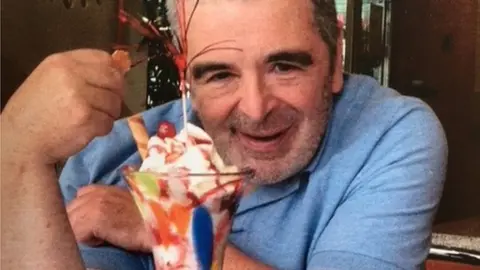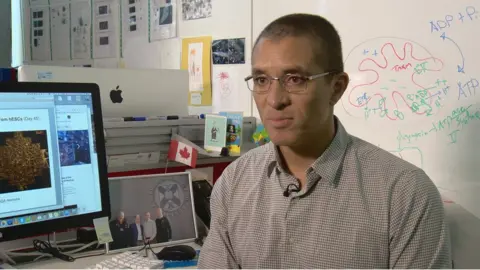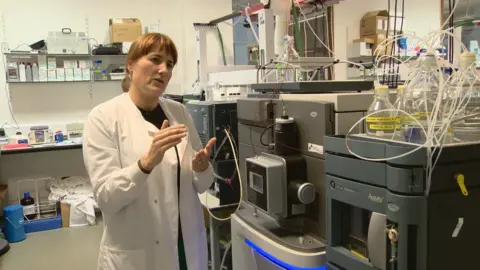Scientists sniff out Parkinson's disease smell
Scientists are close to establishing what causes a smell associated with sufferers of Parkinson's disease.
They hope it could lead to the first diagnostic test for the disease.
The breakthrough came after Joy Milne astonished doctors with her ability to detect the disease through smell under scientific conditions.
A team from Manchester has found distinctive molecules that seem to be concentrated on the skin of Parkinson's patients.
One in 500 people in the UK has Parkinson's - that is 127,000 across Britain.
Musky smell
It can leave them struggling to walk, speak and sleep.
Currently there is no definitive test for the disease, with clinicians diagnosing patients by observing symptoms.
This is how the disease has been diagnosed since 1817, when James Parkinson first established it as a recognised medical condition.
However, that could change because of Joy Milne from Perth, whose husband Les was told he had Parkinson's at the age of 45.
About a decade before her consultant anaesthetist husband was diagnosed, Joy noticed she could detect an unusual musky smell.

Joy said: "We had a very tumultuous period, when he was about 34 or 35, where I kept saying to him, 'you've not showered. You've not brushed your teeth properly'.
"It was a new smell - I didn't know what it was. I kept on saying to him, and he became quite upset about it. So I just had to be quiet."
The retired nurse only linked the odour to the disease after meeting people with the same distinctive smell at a Parkinson's UK support group.
She told scientists at a conference, and subsequent tests carried out by Edinburgh University's Dr Tilo Kunath confirmed her ability.

Joy was given 12 unmarked T-shirts to smell - six worn by Parkinson's patients and six worn by volunteers without the disease.
She correctly identified the six worn by Parkinson's patients, but could also smell the odour on a T-shirt worn by someone in the control group without Parkinson's.
Joy was told three months later that this person had in fact been diagnosed with Parkinson's after the T-shirt tests.
No cure
Dr Kunath said: "She was telling us that this individual had Parkinson's before he knew, before anybody knew.
"So then I really started to believe her, that she could really detect Parkinson's simply by odour that was transferred on to a shirt that the person with Parkinson's was wearing."
Joy's husband died in 2015, aged 65.
There is no cure for the disease and Joy's last promise to him was that she would investigate her special ability and how it might help others.
Dr Kunath has enlisted the help of Prof Perdita Barran, an expert in chemical analysis from Manchester University, to try to isolate the actual molecules that form the odour that Joy is able to smell.

Prof Barran's team collected samples from patients with Parkinson's and a control group of those without, to see if there were molecular signatures that only people with the disease have.
The samples were put through a mass spectrometer, a device that isolates and weighs individual molecules.
The first set of results indicated there were 10 molecules distinctive to Parkinson's sufferers.
Prof Barran said: "It is very humbling as a mere measurement scientist to have this ability to help find some signature molecules to diagnose Parkinson's. It wouldn't have happened without Joy.
"For all the serendipity, it was Joy and Les who were absolutely convinced that what she could smell would be something that could be used in a clinical context and so now we are beginning to do that."
You can see more on this story in The Woman Who Can Smell Parkinson's at 19:30 on Monday 18 December, on BBC One Scotland, and afterwards on the BBC iPlayer.
